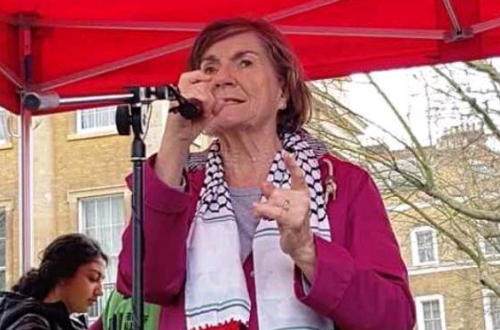This is a cross-post from Student Rights
On Monday 16 March Afsana Kayum, a student at the University of East London (UEL), was jailed for 18 months for possession of a record containing information contrary to the Terrorism Act.
This referred to a number of issues of Inspire, an online magazine published by Al-Qaeda in the Arabian Peninsula (AQAP), which were discovered hidden at her house in September 2014.
During Kayum’s trial it emerged that she had been in contact with convicted terrorists, including a text message conversation with Ruksana Begum, jailed for a similar offence in December 2012.

She had also written to Abu Hamza Al-Masri, convicted of soliciting to murder in the UK in 2006, and of involvement in hostage-taking and other terrorist offencesin the US in January 2015.
In recent years Kayum’s university, UEL, has appeared to take the risks posed by extremism and the presence of extremist speakers increasingly seriously.
During 2014 the university stepped in on at least two occasions to prevent speakers with intolerant views from appearing on campus, including one featuring UthmanLateef and Murtaza Khan.
Lateef is director of the Hittin Institute (HI), and in 2009 was advertised as speaking alongside the Al-Qaeda-linked clericAnwar Al-Awlaki at an HI event.
He has been accused of homophobia, saying “we don’t accept homosexuality […] we hate it because Allah hates it”, and warning against “a democratic Islam…the redefined, repackaged Islam”.
Khan, meanwhile, has endorsed harsh punishments for ‘fornication’, and has saidhomosexuality is an “abominable action which goes against humanity”, with death the correct punishment
However, despite these efforts, evidence uncovered by Student Rights highlights that student social media at UEL has been used throughout 2014 to share extreme views, and even express support for convicted terrorists.
This has included posts claiming UK counter-extremism policy is trying to “specifically target us[Muslims] and bring us down”, and that Muslims are being arrested under the “pretext of “terrorism””.
Another status, taken by the Islamic Society from the Facebook page of 5Pillarz writer MuhammadDilwar Hussain, called Imams who had criticised terrorist attacks “spineless colonised Uncle Toms”.More worryingly, a post in July 2014 defendedextremists, including the convicted terrorist AbuBakr Mansha, after they were convicted of grievous bodily harm inflicted during a religiously motivated assault.
It asked: “if YOUR sister was harmed what would you do?” in relation to the incident, in which Mansha and his associates followed several men they believed had harassed “a Muslim sister”, beating them both and leaving one with a fractured skull.
Other posts celebrated the lenient sentencing of Babar Ahmed and Talha Ahsan, both convicted in the US of providing material support to terrorists, and claimed they had faced “false charges”, and linked to an article from the CAGE website by convicted terrorist John Walker Lindh.
Given the nature of these posts it would not be implausible to suggest that an environment conducive to radicalisation may have existed at the university, or that this could have had an effect on Kayum.
If this was the case, and her campus environment did contribute to her radicalisation, it will be yet more evidence that UK universities are still unable to fully challenge extremism – and will lend further weight to the argument calling for them to take this issue more seriously.


